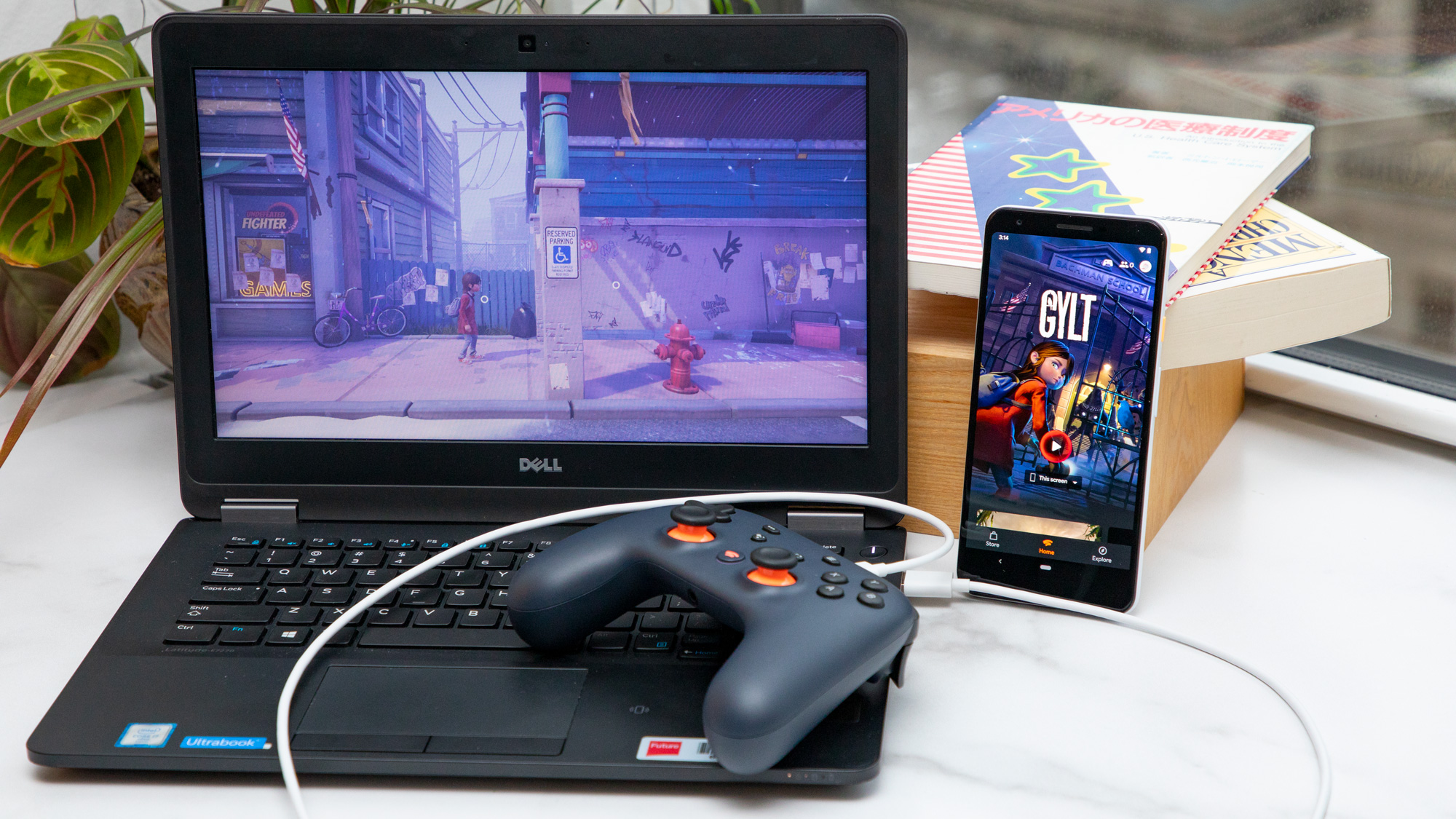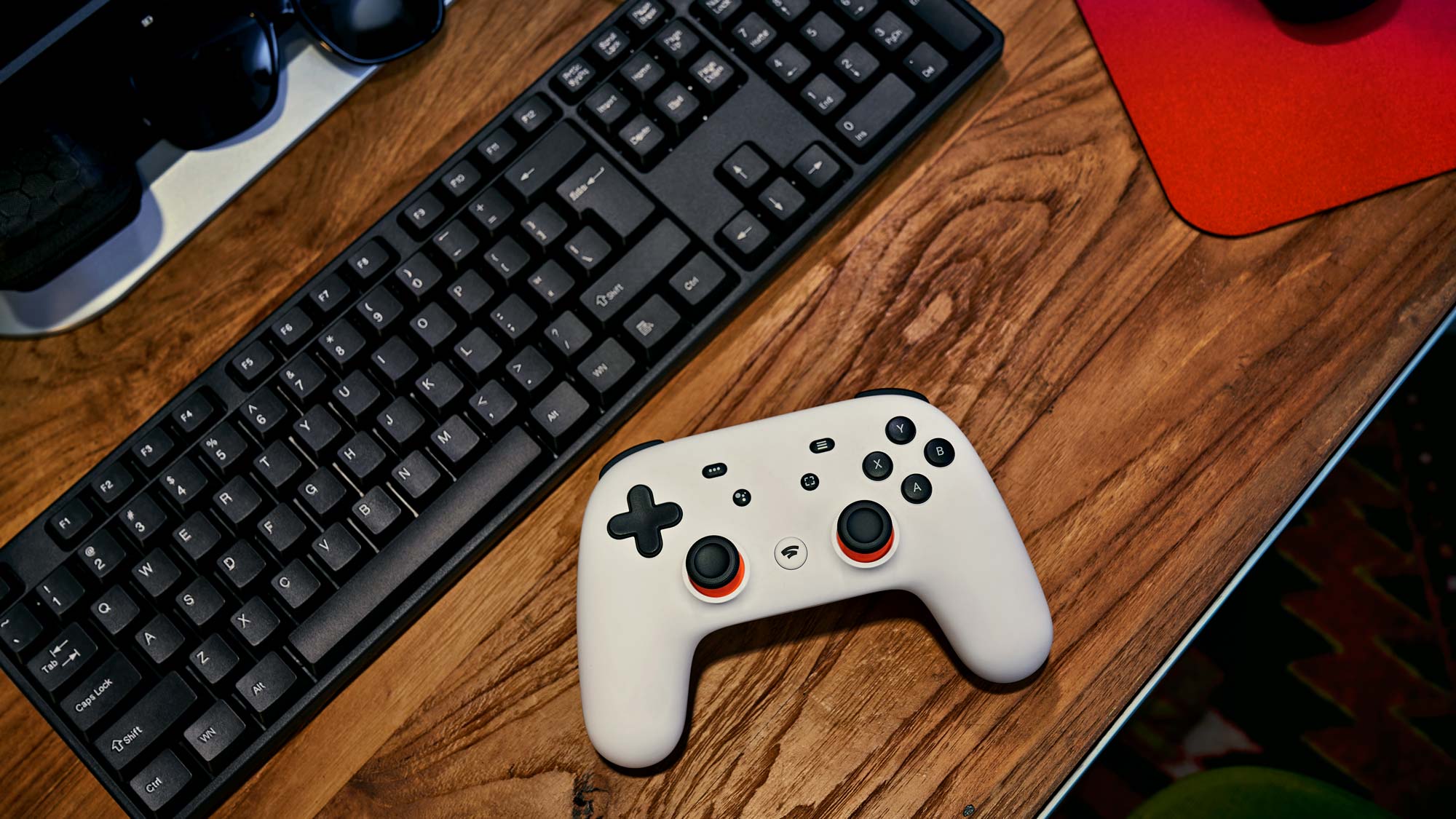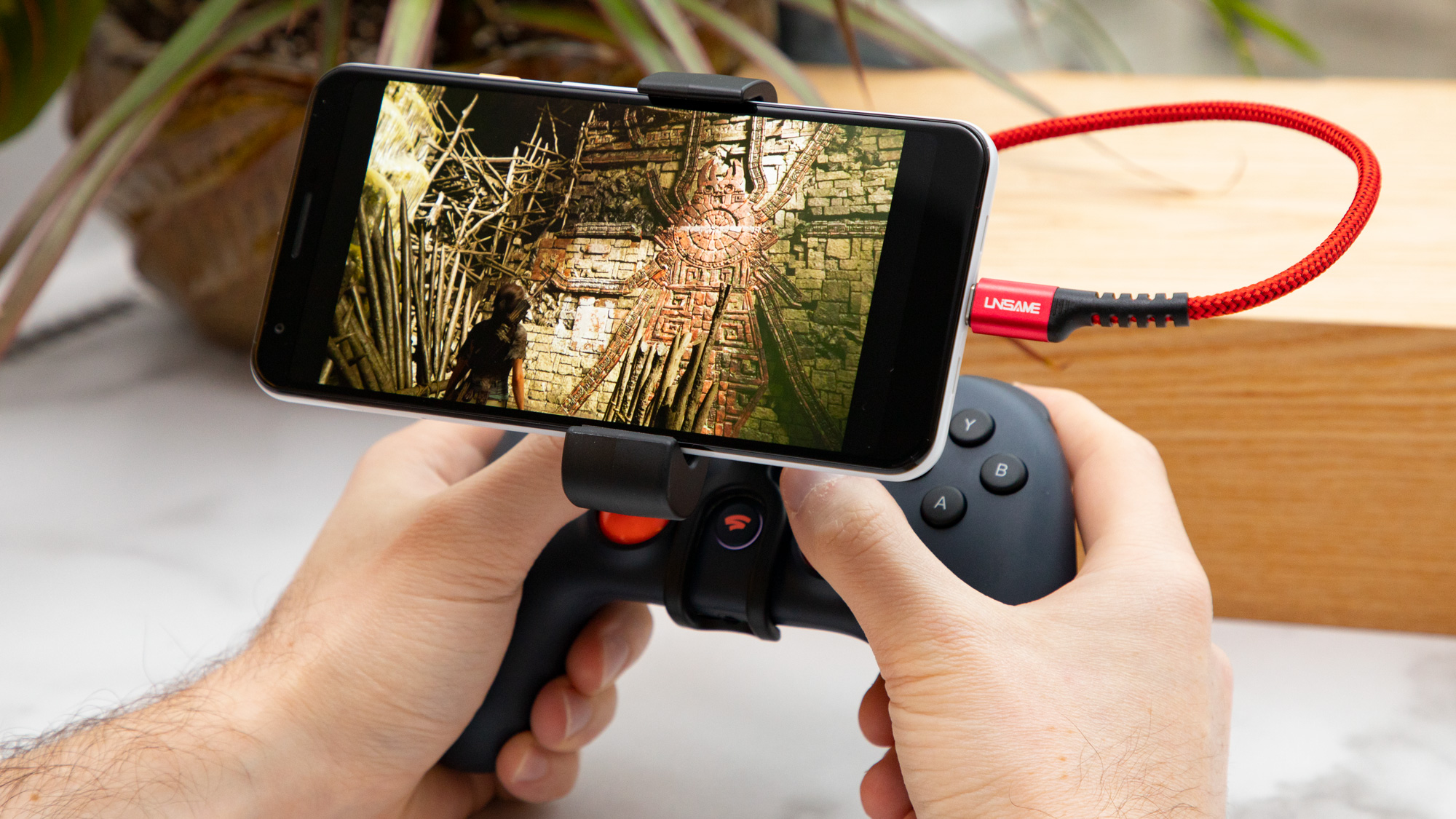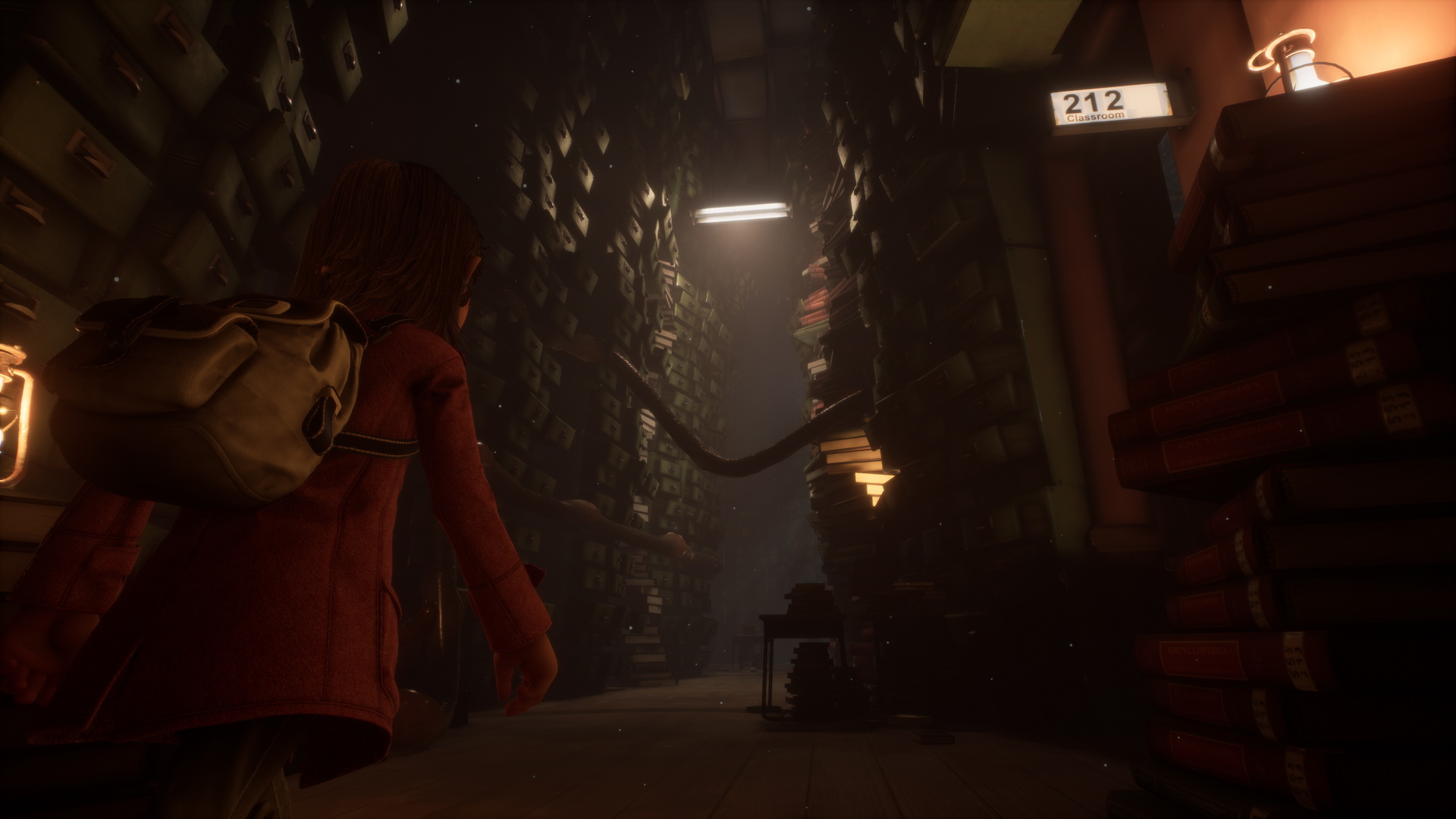Google Stadia was never going to work
Google Stadia wanted to sell gamers something they already had

Google Stadia hit a major roadblock this week, when Google announced that it had ceased all first-party game development for its innovative cloud gaming service. The company shut down not one, but two development studios, and bid farewell to Jade Raymond, the visionary producer who greenlit Assassin’s Creed. Google claims that Stadia will be focusing on forging strong partnerships with third-party studios from now on.
In other words: Stadia just lost its biggest chance to stand apart from the rest of the gaming pack. For a service that always struggled to forge an identity of its own, it's a tremendous blow. While it's not quite dead yet, it's reasonable to wonder if Stadia will still be around in a few years.
- Play the best PS5 games
- Also check out the best Xbox Series X games
- Super Bowl 2021 live stream: How to watch it online for free
Without any exclusive games, there’s essentially nothing to set Google Stadia apart from the PC, PS5 or Xbox Series X — save for its cost of entry. Stadia’s saving grace has always been its ability to play games on platforms you already own, obviating the need for a $500 console, or an even more expensive PC.
The question is whether there’s a huge audience of people who need that feature. In my original Google Stadia review, I argued that there might not be. And unless that audience is prepared to emerge in droves within the next few years, it’s possible that Google Stadia was — and is — simply a solution in search of a problem.

“Who is this for?”
Between mice, keyboards, headsets, monitors, desktops, laptops, games, streaming services and Web browsers, I write a lot of reviews. And every time I sit down to write one, no matter what kind of product is it, my first question is always the same: “Who is this for?”
More so than specs, or price, or features, the single most important thing about any product is its intended audience. If an extremely flawed product could prove useful to its potential audience, it is, on some level, still worth considering. If a nearly perfect product doesn’t offer any particular benefit to its potential audience, it’s probably safe to ignore it.
While I admire a lot about Google Stadia, I’ve never been able to answer “Who is this for?” satisfactorily. From my original review:
Sign up to get the BEST of Tom's Guide direct to your inbox.
Get instant access to breaking news, the hottest reviews, great deals and helpful tips.
“My biggest takeaway from my Google Stadia review, though, is that I simply don't understand who needs it … [It’s] appealing to think that aspiring gamers can now jump into big-budget mainstream titles without having to drop $300 on a console like the PS4 Pro or Xbox One X, or much more than that on one of the best gaming PCs. But is there really a huge audience that's been waiting breathlessly all these years to play Destiny, or Tomb Raider, or Just Dance, but is also unwilling to buy a gaming platform?”
History has more or less borne me out on that one. While Google has been extremely cagey about exact sales figures, we do know that about a million people downloaded the app as of last April. By itself, that’s a large number, and no doubt Stadia has grown since then. But consider that the PS5 has sold more than four times as many units in less time — and the PS5 costs at least $400, whereas the Stadia app is free. (The Xbox Series X is apparently not far behind, so this is not a Sony-specific phenomenon.)
Stadia’s library mostly comprises “core” games. These are often big, lavishly produced adventures that take dozens of hours to complete, such as Assassin’s Creed Valhalla, Final Fantasy XV, Shadow of the Tomb Raider, Mortal Kombat 11, Sekiro: Shadows Die Twice, Jedi: Fallen Order and so forth. Generally speaking, you need a console or PC to run these games, unlike simpler fare, which works fine on a cell phone.
But given the choice between paying $500 for a brand-new console and simply buying games à la carte and streaming them, gamers seem to be going for the former option by a factor of at least fourfold.
Proving this point beyond a shadow of a doubt would require more data than we have access to. But the common-sense conclusion is that Stadia’s games cater to an audience that, by and large, does not require Stadia’s services. If you’re the kind of gamer who wants to play Doom, or Watch Dogs 2, or Octopath Traveler, you probably already own a system that can do the same thing.

Stadia’s shrinking benefits
Granted, Google Stadia offers a few features that consoles and PCs can’t match — or at least it did when it first launched. If you buy a game on Stadia, it’s doesn’t have to live on a big black box in your living room. You can play your game on a PC; you can play it on a TV; you can play it on a smartphone; you can even play it on a Mac — a feature that, by itself, nearly justifies Google’s whole experiment.
But while these ideas were nearly revolutionary in 2019, they’re become a lot more commonplace since then. Services like Nvidia GeForce Now and Cloud Gaming (Beta) with Xbox Game Pass (which needs a catchier name, posthaste) also let you stream games to any computer, and most smartphones.
The big difference — and the reason why GeForce Now and Xbox Cloud Gaming are generally better than Stadia — is that Nvidia and Microsoft’s services let you fully leverage the hardware you already own. If you have an Xbox or a PC, you can download a game and run it in real-time, or even offline, if you prefer. If you prefer to use a different platform, you can stream it.
By offering core games, but locking players into a streaming delivery system, Stadia essentially bypasses powerful tech that its audience already owns. This ignores the fact that gamers often feel attached to their gear, be it the familiarity of a console, or the hard work that went into building a PC.
More importantly, it also puts your experience entirely in Google’s hands. If Stadia’s servers don’t play nice — and sometimes they don’t — you have no choice but to wait it out, even if you’re playing a single-player game. If the game drops a few frames now and then, or doesn’t render background textures properly, or syncs audio improperly, it’s a worse experience than just using the console or PC you (probably) already own.

A familiar selection
Still, if Stadia had a rich host of exclusive titles, these problems wouldn’t really matter. Gamers had no issue buying the Nintendo Switch to play Breath of the Wild, or the PS5 to play Demon’s Souls; they’d have even less of a problem buying an exciting exclusive on Stadia, since there’s no associated hardware cost. (There’s a $10-per-month subscription if you want to play in 4K, but that’s still a long way from $300-500 for a whole new console.)
Despite being on the market for more than a year, Stadia has very few exclusive titles: Gylt, Crayta, and Orcs Must Die 3. All three games were decent, but not what you’d call “system-sellers.” Apart from that, they all seemed like they’d play just fine on a PC or console; there’s nothing distinctively “Stadia” about them. Now that Stadia’s first-party prospects are essentially nil, a breakout exclusive hit seems like an even more remote prospect.
That brings us back to the proverbial millstone around Stadia’s neck: It is, and always has been, a service that sells games to people who already have better means to play those games. I’m not denying that there’s a real gear-restricted audience that’s benefited. But all indications suggest that this audience is very small, while traditional gaming systems are just as popular as ever.
To leave you with a concrete example, Cyberpunk 2077 was probably as close as Stadia has come to a breakout hit. While Cyberpunk 2077 is available on the PS4, PS5, Xbox One and Xbox Series X, it works (somewhat) properly only on PC — and only very high-end PCs at that. And Stadia essentially gives users a high-end PC for the price of a single game.
But as veteran producer Jacob Novik pointed out, once it’s patched, Cyberpunk 2077 will be (almost) as good on most other platforms, putting Stadia right back where it was to start. Given the choice between something familiar that works well, and something new that works almost as well, people will usually go for the former.
Marshall Honorof is a senior editor for Tom's Guide, overseeing the site's coverage of gaming hardware and software. He comes from a science writing background, having studied paleomammalogy, biological anthropology, and the history of science and technology. After hours, you can find him practicing taekwondo or doing deep dives on classic sci-fi.
-
DarkSaintOfGin While I agree with a lot of this article, it feels like the author somewhat misses the point of cloud gaming and makes a pretty big assumption about the average gamer.Reply
Not all gamers, even the serious ones, have top end hardware all the time. It's a bit arrogant to even imply that. It's expensive and a hassle to even buy top end gaming hardware and while I recognize that's an indication of popularity, it's also heavily influenced by timing. Cloud gaming is very new while traditional hardware is established. No one, myself included, is prepared to skip this gen for cloud gaming but next gen? Maybe, that's a long time for people to accept it. Digital only games were "doomed" in the beginning too but things changed.
In theory, cloud gaming gives any gamer access to the best possible experience. That's it's main benefit. Not playing Assassin's Creed on your phone or similar. Being able to play Assassin's Creed Valhalla seemlessly at 4k with ultra quality graphics on a $50 Chromecast or the Nvidia Shield I already use as my entertainment hub.
The audience you can't identity is PC gamers who don't want to maintain gaming rigs anymore and console gamers who want better quality. The fact that we JUST had a hardware refresh obfuscates things a bit because they're the most powerful they'll ever be right now. But let's talk in 2-3 years and see how they handle modern 4k gaming.
I think cloud gaming is the future. In the end, it's better for everyone involved. Stadia Pro provides a great experience but Google will probably screw it up and the first party thing sucks. Still, the Xbox Game Pass model isn't bad and easily adopted. Stadia Pro BADLY needs to expand their free offering but I definitely see it as a viable model. -
henriquecarioca The game market is huge, and the minority has what you think is the majority!Reply
Stadia will stand out after it is installed from the factory on smarTvs, and google has AndroidTV and just made a deal with LG to also come pre-installed!
Not to mention other services that have integrated into Stadia such as Youtube, Android and Playstore! -
altrae I'm a gamer and I have a decent pc, but the reason I love Stadia is because it offers a lot of flexibility I didn't previously have. I can play on my phone, my tv, my pc, my mac laptop, or pretty much any device that can run chrome and and has a decent internet connection. That's huge because I don't always have access to my pc if I'm traveling or sometimes I just wanna chill in a different room.Reply -
subvert Replyhenriquecarioca said:The game market is huge, and the minority has what you think is the majority!
Stadia will stand out after it is installed from the factory on smarTvs, and google has AndroidTV and just made a deal with LG to also come pre-installed!
Not to mention other services that have integrated into Stadia such as Youtube, Android and Playstore!
I can see cable companies bundling this as a part of their service. There's an entire market of gamers out there that can be tapped here. I can't help but feel the author is short sighted.
Google's on to something. I don't blame them for getting out of the game development. Game development and production is a risky and very difficult endeavor. Just creating the platform is risk enough. I don't know if they'll succeed but the payoff is huge if they do. -
leMARoNa As pointed out by the previous comments I think there is a huge untapped market, before game streaming services there simply has not been a way for the casual gamer to play AAA games.Reply
To answer the author's question from their original review:
"But is there really a huge audience that's been waiting breathlessly all these years to play Destiny, or Tomb Raider, or Just Dance, but is also unwilling to buy a gaming platform?"
Yes, yes there is. But these "aspiring gamers" don't know that it's now possible to play these games without investing in gaming hardware. When Stadia has Android TV integration I think that's the point when we will start seeing a marketing push. Because they will then have the opportunity to grab those people who would normally sit down for the evening to stream a movie and say "hey, want to play Cyberpunk?"
Personally I think I'm in a subset of those "aspiring gamers" group, I now have limited time to play games and my latest consoles are a PS3 and Xbox 360. I really want to dive into the latest AAA triple games but it's very hard to justify paying for a console when I know I might only be able to play one or two of these games a year. It's an even harder sell now that consoles don't offer any added benefit like they used to because smart TV's have filled that gap, they are simply a gaming device. Game streaming services remove that decision entirely because I'm simply buying the game with the added benefit of not having to wait for OS and game updates to download and install. In my case I would have never considered buying Cyberpunk knowing that I would have to get either a new PC capable of playing it or a new console. -
Jabobo This article is quite the self centred opinion piece on part of the author. Of course Stadia is pointless for people who own high end hardware, that's been obvious from the outset. Stadia is for people who don't own consoles or high end PCs, but still want to give current gen gaming a go. I know plenty of people in thier 30s/40s who havent bought a console since the PS3 era due to natural life progression like careers and families...myself included. When you can skip the $1,000+ PC or $600+ console and jump right into a modern game, Stadia is absolutely perfect. No upgrades, no installs, no system crashing or overheating. I didn't even know google had an in house game development studio, and quite frankly I'm surprised they did given that Stadia is a bit of a niche. But that doesn't mean there's no market at all or that the service is doomed. I'm perfectly content playing content from popular developers.Reply

